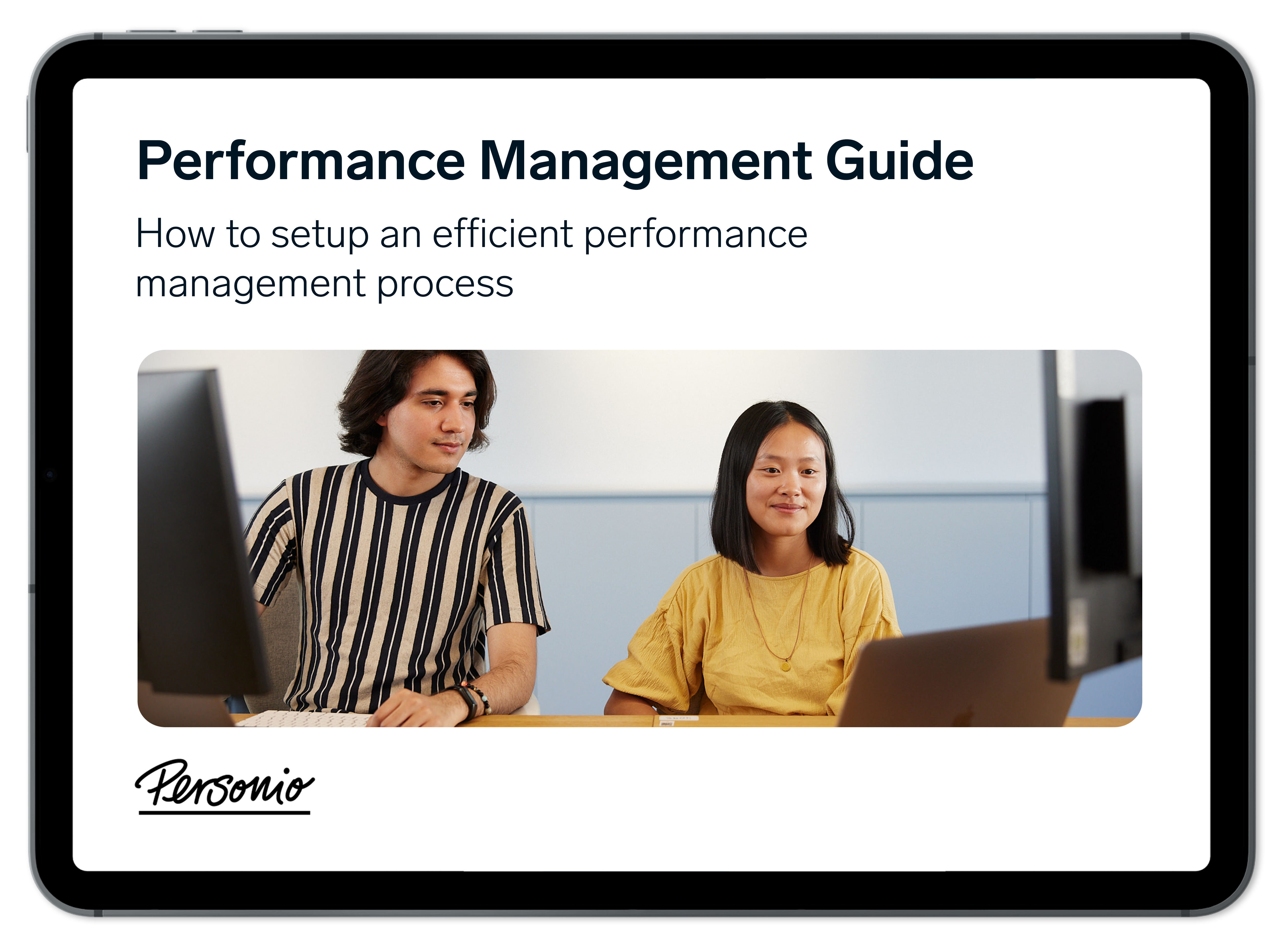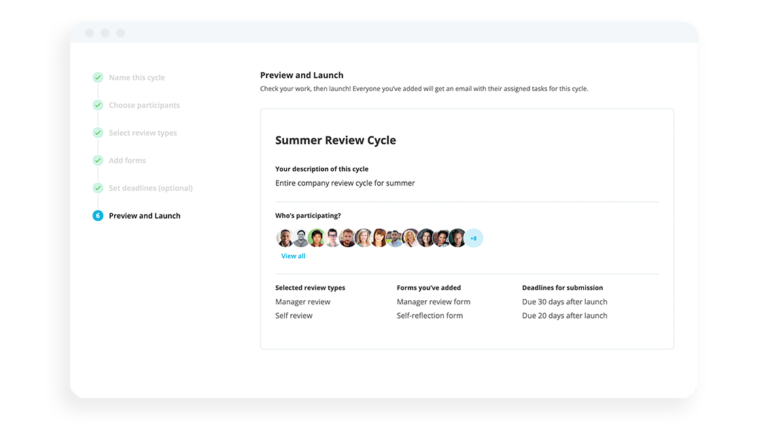Bonuses and Building Bonus Schemes for Organisations

Does a discretionary bonus have a tangible effect on workplace morale? When it comes to bonus schemes, more generally, is there a certain type that works best? Can a bonus really have an effect on how hard (or how well) people work? Let’s find out.
This article will explain all the benefits of a bonus scheme, what a discretionary bonus is, and various types of work bonuses. So if you’re a leader looking for the right bonus scheme for your organisation, we recommend reading on.
Download our guide to getting the best performance out of your employees today.
What is a Bonus Scheme?
A bonus scheme is a form of reward in an amount of money that you, as an employer, give to your employee on top of their standard paycheque. This sum of money is usually awarded for a specific reason, such as hitting an objective, or seasonally, like a Christmas bonus.
Bonus schemes are typically structured as one of the following:
Individual bonus scheme: Focuses solely on the single employee and their targets— if the employee meets the goals set, they receive a bonus.
Team bonus scheme: Rewards the team that succeeds in hitting their goals. Team bonus schemes offer great encouragement to an entire team and can foster positive team spirit. It can also encourage healthy competition between teams.
Company-wide bonus scheme: Encompass all teams and employees. They usually serve as a focal point for everyone by stating the most critical goal the company wants to accomplish. Company-wide bonuses don’t have to be performance-based ( as is the case for a Christmas bonus).
On top of this general structure, bonus schemes can involve a combination of any of those mentioned above. So an employee might have their bonus scheme tied to both their personal performance and their team’s performance, too.
What is a Discretionary Bonus?
Businesses operating in the United Kingdom need to be mindful of two main types of bonus schemes: discretionary schemes and contractual bonuses.
A contractual bonus is a bonus scheme that has certain requirements that need to be met.. This is typically written out in an employment contract, so the employee in question immediately knows what they need to do to receive their bonus and when it will get paid out. If targets are met, the employer is bound to granting that bonus.
A discretionary bonus has no contractual obligation. A manager or business owner can pay the bonus at any time and in any amount. Since it’s not written in the employment contract, employees can only hope to receive a discretionary bonus, but they have no idea when it will happen and the final amount (all of this may vary).
Even though discretionary bonuses have no contractual obligation, business leaders should still provide a structure. An employee will be more satisfied and work toward their goals due to the transparency. So, set the right expectations regarding discretionary bonuses with your employees to motivate them accordingly.
Three Key Types of Bonus Schemes
There are three main types of bonus schemes:
Individual performance bonus schemes: Involve the individual’s performance. Bonuses here can be non-discretionary (contractual) or discretionary.
Range bonus schemes: The range refers to the level of the bonus scheme — whether on the individual, team, department or company level.
Payment bonus schemes: These can either be monetary (cash rewards), or non-cash rewards like recognition (employee of the month) and in-kind rewards (free yoga sessions, paid trips, vouchers, gift cards, etc.)
Define Goals & Link Them to Bonus Payouts

Make your employees’ development visible by defining and tracking both qualitative and quantitative targets. If targets are linked to bonus payments, results are automatically transmitted to payroll.
Find out moreFive Examples of Bonuses at Work
Bonuses work best when they are simple, tangible and understandable. Here are five of the most popular bonuses used in modern organisations:
A percentage of employee salary
A flat payment (lump-sum payment)
A percentage of sales
A commission
The point of a work bonus isn’t for an employee to sit and read the bonus scheme for hours, trying to understand it. By keeping it simple, you chart a clearer path between employee motivation, performance and rewarding that great performance.
The Benefits of a Discretionary Bonus and Bonus Schemes
Think of a bonus scheme, like a discretionary bonus, as a big perk for joining and staying at your company. After all, if your top performers know they will get rewarded for the great work they do, they will want to stay longer and work even harder.
Some of the core benefits of implementing a bonus scheme include:
Talent Attraction – Bonuses can bring more applicants to your job adverts and, subsequently, into your company.
Motivation – Whether an individual, team or organisational bonus, bonuses can lead to a more motivated workforce.
Do Bonus Schemes Generally Work?
Bonus schemes work and don’t work, it all depends on how you choose to analyse them. According to SHRM, bonus schemes work, but you need to be careful about implementing them and the expectations (and motivation) they set.
For example, if discretionary bonuses are solely focused on cash, you might incentivize employees only to seek work that will get them the bonus.
You should balance this out with recognition bonuses and the ones that have an internal gratification for the employee (internal vs external motivation).
The Big World of Discretionary Bonuses
Bonus schemes and discretionary bonuses can be good for your bonus, but only if you approach them with a high level of intent. You need to know what you want to motivate and how you want to motivate your workforce.
That may require a larger conversation around the topic of goals, performance and your total reward strategy in your company. After all, a bonus without purpose may simply be throwing money out the window – without having any effect on your workforce.
To gain the time back to focus on the quality of performance conversations, Personio’s Performance and Development feature helps automate performance cycles, track goals and even facilitate bonus payouts based on those goals.
If you want to harness the power of bonuses, you need to start from a place of transparency and focus on your performance processes. Speak to one of our experts today on how Personio can help unlock the true potential of your workforce (and more).

